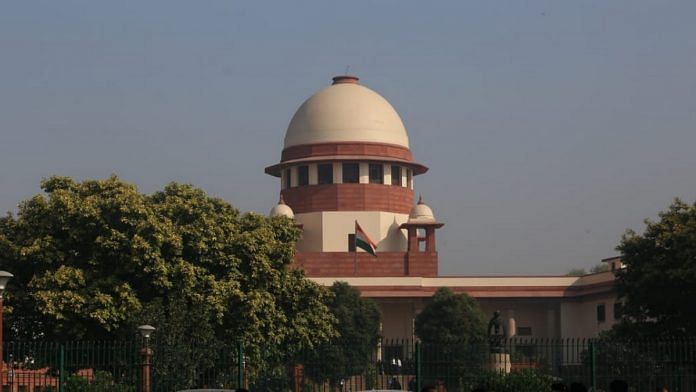New Delhi: The Supreme Court Monday ruled that deemed universities would come under the ambit of the Prevention of Corruption (PC) Act 1988.
In doing so, a bench comprising Justices N.V. Ramana, M.M. Shantanagoudar and Ajay Rastogi set aside a Gujarat High Court order and directed a trial court to proceed with the corruption case against an official of a deemed university who is accused of seeking Rs 20 lakh in bribe from an MBBS student. The high court verdict had been challenged in the Supreme Court by the Gujarat government.
‘Deemed university’ is a highly sought-after tag that endows an institution not just with degree granting powers, but also a stamp of quality approval that in turn draws students. The bench observed that the officials of a deemed university do not perform any less of a public duty than their counterparts in other universities.
“The purpose under the PC Act was to shift focus from those who are traditionally called public officials, to those individuals who perform public duties,” it said.
“Keeping the same in mind, as rightly submitted by the learned senior counsel for the appellant state, it cannot be stated that a ‘deemed university” and the officials therein, perform any less or any different a public duty, than those performed by a university simpliciter, and the officials therein.”
Also Read: Parliament amends anti-corruption act: Will it weaken the law or restore fairness?
Accused of bribery
The case centres on Mansukhbhai Kanjibhai Shah, the trustee of a charitable trust that established a deemed medical university in Gujarat.
Shah is accused of seeking a Rs 20 lakh bribe from an MBBS student for permission to let her take the final examination.
The girl’s mother filed a complaint with police against Shah and three others, and the four were subsequently booked under sections 7 (public servant accepting illegal gratification), 8 (taking illegal gratification to influence public servant), and 13 (1)(b) and 13(2) (criminal misconduct by a public servant) of the Prevention of Corruption Act, 1988, read with Section 109 (pertaining to abetment) of the Indian Penal Code.
Shah had then approached a trial court seeking discharge from the case. When the court refused, he moved the Gujarat High Court.
In 2018, the Gujarat High Court discharged Shah from the case, stating that a deemed university does not come under the purview of the 1988 Act.
‘Grave suspicion’ against accused
The apex court noted that Section 2(c)(xi) of the Prevention of Corruption Act states that a “public servant” includes “any person who is a vice-chancellor or member of any governing body, professor, reader, lecturer or any other teacher or employee, by whatever designation called, of any university”. But it added that the law does not define the ambit of the term “university”.
The court then looked into the purpose of the anti-corruption legislation and asserted that the definition of “public servant” outlined focuses on the “public duty” performed by an individual.
Referring to principles of interpretation of statutes and the legislative debates that took place prior to the Act, it ruled that the high court was incorrect in excluding deemed universities from the meaning of “university” under the Act.
Shah had argued in court that he is just the trustee of the charitable trust that established the university and has no connection with the institution itself. However, the court noted that, on prima facie evaluation, Shah appeared to be the final authority with regard to grant of admission, collection of fees and donation amount.
The court said there is “a grave suspicion” against Shah and he should not have been discharged. The aspect of his involvement, it said, needs to be looked into through detailed appreciation of evidence. It then set aside the high court judgment and asked the trial court to proceed with the case expeditiously.
Also Read: Over 50% population in 13 states paid bribes to govt departments in last one year: Survey




The more important question the top Court is required to consider , whether the top Court is truly independent and fearless champion of the common man , delivering orders / Judgements in fair and impartial manner under the law , irrespective of the Govt., being party to the litigation or not .